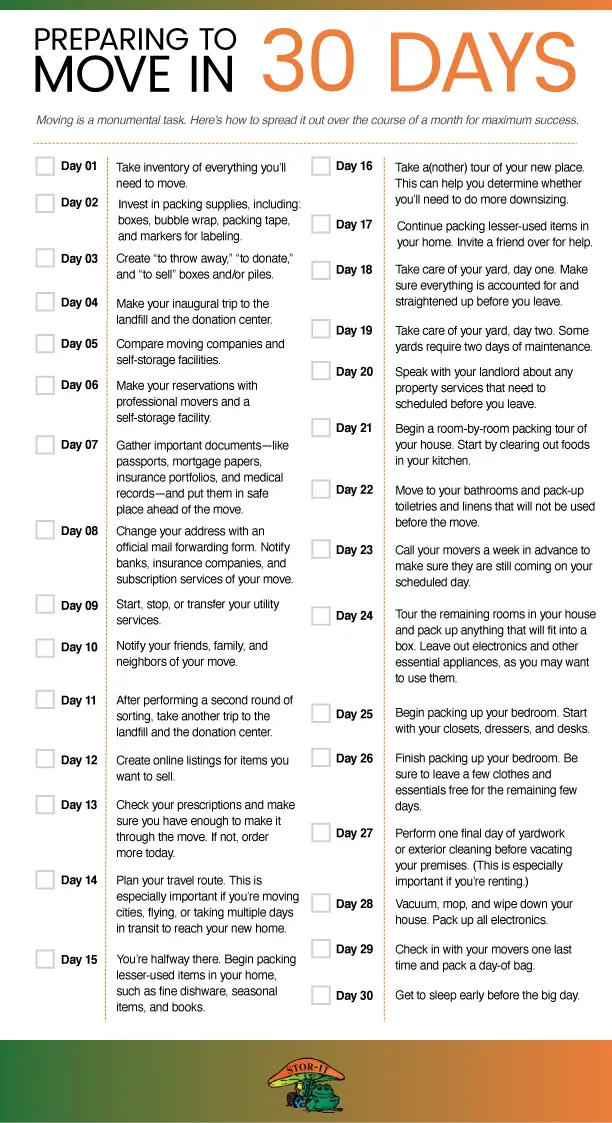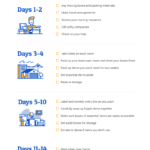There are many steps to take to prepare for moving out, from getting health and renters insurance, to packing and cleaning. You will also want to prepare to get rid of items you don’t need anymore. Before you move out, make sure you’ve cleaned out your house so that you can clean it up easily. If you live an easy lifestyle, now is the time to start changing your ways. After all, your parents don’t have the time or the energy to clean up after you.
Getting renters insurance
Getting renters insurance is a must for people who are renting a home, whether you’re staying at a shared property or renting an apartment. Although it isn’t required, some landlords require tenants to purchase this policy. It is also a good investment because it helps lower the risk for the landlord. It’s also relatively inexpensive, costing an average of $16 a month. Here are some tips for choosing a policy:
First of all, make sure that you understand what your coverage includes. Renters insurance coverage covers you when you are renting, not if you buy the house. You can transfer your renters insurance to your new home, but you should make sure to get a quote from different companies to ensure that you get the best coverage. You should also ensure that the policy will transfer to your new address. It’s best to notify your current insurance company so that they can make the necessary changes.
Another important aspect to consider when purchasing renters insurance is the deductible. Most renters insurance policies come with a minimum $500 deductible, but if you have a lot of valuable items, you might want to consider raising this amount to $1,000 or even $2,500 to save money on monthly fees. Just make sure that you understand your deductible before signing up. Make sure that the policy covers all of your possessions, not just the valuables inside the house.
Renters insurance also covers personal liability, which means that if you get sued for causing an accident in the apartment, you can be reimbursed for it. It’s also important to remember that renters insurance has limits, and your policy will explain what you can claim for. For example, if your possessions were stolen and you’re not at fault for it, your insurance provider will cover the depreciated value of the items in the property. However, if you are responsible for causing the damage, your insurance provider may not cover everything, including your personal liability.
When you move out, you’ll likely have to renew your renters insurance policy. You may be able to get it with your moving company. However, make sure to update your policy with your new address and the property manager. Some insurers are not available in some parts of the country, and some areas are difficult to insure. If you have an old policy with one company, you can transfer the unearned premium to a new policy with another company. If you’re leaving the property and moving to a new one, you can often get a refund of the premium you’ve paid in the past.
Getting renters’ health insurance
Getting renters’ health insurance when moving outside of your parent’s house can be an exciting and stressful time. It is also an additional expense, since your parents’ homeowners insurance will no longer cover you. It’s important to protect your personal property with renters’ insurance, but it can be expensive to buy. Here are some benefits of this extra coverage. 1. It can protect you from damage caused by fire or theft. 2. It will defend you against frivolous or false liability claims.
First, you should know that your renters’ insurance policy will likely come with you when you move out. However, make sure you update the policy with your new address. Also, change the deductible and coverage limits. You will pay about $15 to $30 per year for renters insurance, depending on the coverage level you choose. Some areas are difficult to insure, so make sure you research the neighborhood and ask about its safety history.
The coverage will also cover the cost of temporary relocation. If your home is destroyed or your apartment is damaged, renters insurance will help pay for the costs of lodging and food while you’re searching for a new place to live. This can be very helpful in emergencies, and you should get coverage for these costs when you move out. If you move out without renters insurance, be sure to make sure you get a policy that covers your relocation expenses, including food, lodging and laundry.
Another advantage to renters’ insurance is that it’s inexpensive. The insurance usually covers extra living expenses, such as hotel and food expenses. If you’re moving out of an apartment, you can get renters health insurance that covers your stuff while in transit. This coverage will also cover your medical expenses in case of an emergency. In addition to your health insurance, renters insurance is a good way to protect your valuables.
Renters health insurance is a great idea when you move out. It’s a great way to protect yourself in case of damage or theft. Unlike with other types of insurance, renters insurance is flexible, allowing you to adjust the deductible to fit your budget. In the case of a fire, for example, the insurance will reimburse you for the costs of staying in a hotel room. If you need to store your belongings, renters insurance may cover the cost of a storage facility for you.
Getting renters’ insurance before moving out
Renters’ insurance is an essential part of the renting process. It pays to know what is covered and what isn’t so you can be prepared in case of an accident. This insurance is also good for moving expenses, such as packing and transporting belongings to your new home. It is easy to cancel a policy and transfer it to a new landlord’s insurance plan. It is recommended to contact your insurer in advance to make sure that your policy will cover your new address.
It’s also important to get the right coverage for the amount of belongings you have. Renters’ insurance is costly. The premiums depend on the coverage level, but you can often get discounts for bundling your home insurance with another policy. You may also be eligible for discounts if you have already purchased insurance through your current insurance company. In addition, you may qualify for discounts if you’ve stayed with them for a long time or equipped your rental home with safety equipment.
If you have a roommate, you can add them to the policy if you want. This way, you’ll be covered for damage to other people’s properties or from injuries in your apartment. However, you can only add one roommate on your policy. Living with a roommate can be tricky, so make sure you’ve taken the time to obtain insurance before moving out. It’s possible to lose the contents of your apartment, but your insurance will cover the expenses.
In addition to coverage for damage caused by fire and theft, renters’ insurance may also cover personal property. You might be surprised to learn that renters’ insurance will cover most of your belongings, including a computer and other electronic gadgets. While this coverage covers the majority of your belongings, you should check with your employer to ensure that you’re covered for any responsibilities. It’s also important to understand that personal property coverage has limits.
If you have roommates, consider getting your own renters’ insurance policy. This way, you’ll have more money to pay for repairs or replacements. However, if you are renting a house for the first time, you’ll have the peace of mind of knowing that you’re covered in case of an emergency. If you rent with roommates, make sure you both get renters’ insurance policies.
Getting rid of unwanted items
Getting rid of unwanted items when preparing to move out is an important part of the moving process. It helps to reduce the amount of stuff that needs to be packed and unpacked. This also leaves the new home uncluttered. There are several ways you can get rid of the things that you no longer need. The simplest way to get rid of unwanted items is to simply throw them away. For larger items, however, you may want to hire a skip.
Another way to get rid of things is by using a one-item-a-day approach. If you do this for a year, you’ll have eliminated 365 items. You can also consider keeping a box by the front door for items that you don’t want. You can use it to donate, recycle, or give away any items that don’t fit in the new space.
While you’re packing, consider donating or recycling your unwanted items. Some charities accept household items for donation. If you’re not sure what to donate, you can contact your local charity and ask if they accept any unwanted items. In addition to recycling your items, you can also get rid of any unwanted electronics, toys, or clothing that you don’t need. The charity can even arrange pick-up for your items.
Another option to get rid of unwanted items is to organize a moving sale. This sale is also called a yard sale. The idea behind this event is to invite friends and neighbors to your home. Those who want to buy your items can purchase them at a discounted price. Garage sales are usually held on Saturdays, but you can also host a sale on a weekday. And don’t forget that a garage sale is an excellent way to make money, as well!






